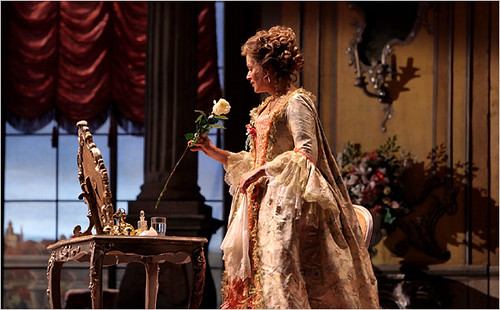
Kaufmann, ossia O Magnífico, aborda, neste registo, compositores situados entre o clacissismo e o romantismo tardio: de Mozart a Schubert, de Beethoven a Wagner. Em estado de graça, o tenor revisita trechos de ópera, exclusivamente compostos na sua língua natural, o alemão.
De timbre cheio, robusto - mas delicado - e baritonal, Jonas Kaufmann evidencia as suas infindáveis qualidades dramáticas e heróicas - perfeitamente adequadas a Wagner (Lohengrin e Parsifal) e Beethoven (Florestan, de Fidelio). Contudo, as ditas qualidades tendem a invadir - tornando algo "pesado" - o lirismo mozartiano (Tamino, de Die Zuberflöte) e de Schubert.
Depois de um primeiro registo consagrado ao tenor lírico, Kaufmann evidencia neste artigo as suas qualidades de heldentenor. Será, sem sombra de dúvida, o mais proeminente e destacado desde Ben Heppner.
Impressionante!
_______
* * * * *
(4,5/5)











